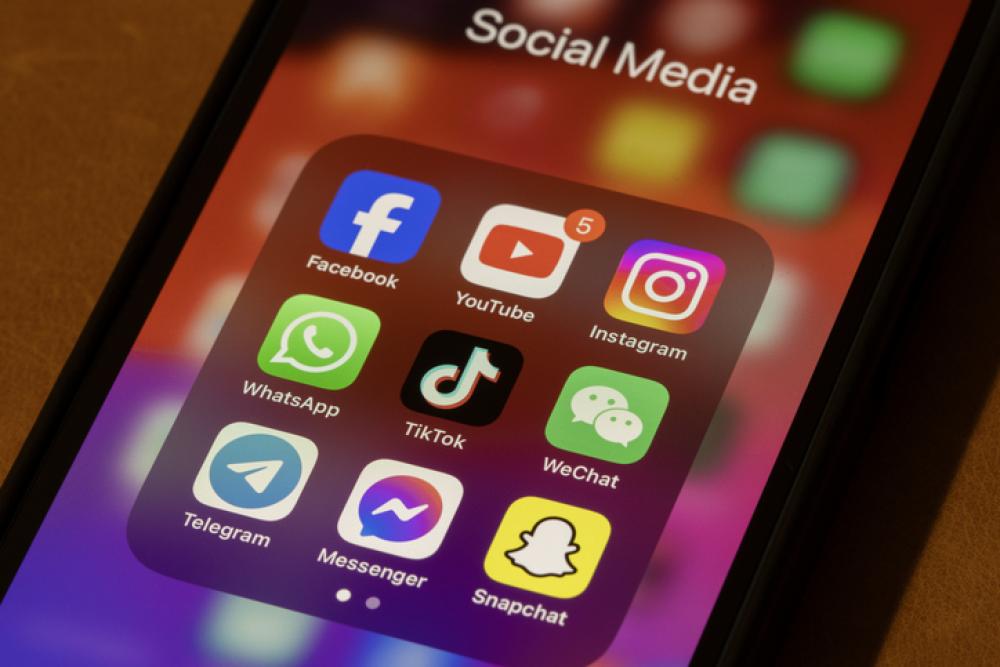New Florida restrictions on kids' social media use can withstand First Amendment scrutiny, state government leaders stressed during a Monday news conference for Gov. Ron DeSantis (R) signing HB-3. Tech industry group NetChoice probably will sue "the day after this bill is signed," said House Speaker Paul Renner (R). "But you know what? We're going to beat them."
Recent House legislation attempting to force ByteDance to divest TikTok raises constitutional issues and doesn’t address broader privacy concerns, Sens. Ron Wyden, D-Ore., and Rand Paul, R-Ky., told reporters Thursday, creating a bipartisan roadblock in the upper chamber.
Bills meant to protect kids online advanced in multiple state legislatures this week. On Wednesday, the Vermont Senate unanimously passed a children’s privacy bill (S-289) requiring an age-appropriate design code. It will go to the House. The same day in Illinois, the House Consumer Protection Committee voted 9-0 to advance a kids’ social media bill (HB-5380) that would require large social media platforms to make application programming interfaces (API) available so that third-party software providers can create tools for parents to manage their children’s activity on the platform. And in Alabama, the Senate Judiciary Committee cleared the House-passed HB-164 with a short amendment. The bill would require a reasonable age-verification method to restrict those younger than 18 from accessing pornographic websites. On Tuesday, Alabama’s Senate Fiscal Responsibility Committee cleared a privacy bill (SB-213) that would require data brokers to register with the state. A Pennsylvania House committee that day advanced a social media bill requiring age verification (see 2403190050).
Scott Harris, NTIA senior spectrum adviser and point person on the national spectrum strategy, has left the agency, he said on social media Thursday. The departure was expected (see 2403050048) and comes a week after NTIA released the strategy's implementation plan (see 2403120056). Harris posted photos from his farewell party, at which NTIA Administrator Alan Davidson and others wore socks emblazoned with an image of Harris’ face. Harris was the former chief of the FCC International Bureau and founder of the law firm now known as HWG.
The House on Wednesday unanimously approved TikTok-related legislation that would ban data brokers from transferring “sensitive” U.S. information to “foreign adversaries” such as China. Meanwhile, the Senate Commerce Committee and the Senate Intelligence Committee are planning a joint hearing about their legislative options.
Pennsylvania House members approved legislation Tuesday that would establish age-verification and content-flagging requirements for social media companies. The House Consumer Protection Committee advanced HB-2017 to the floor with a 20-4 vote. Four Republicans voted against, citing privacy and free speech concerns. Introduced by Rep. Brian Munroe (D), the bill would grant the attorney general sole authority to impose penalties against platforms that fail to gain proper age verification and parental consent or fail to flag harmful content for parents. The committee removed a private right of action from the legislation during Tuesday’s markup. Munroe said the bill requires platforms to strengthen age verification by requiring consent from a parent or legal guardian. It also requires that they monitor chats and notify parents of sensitive or graphic content. Once notified, parents can correct the problem, said Rep. Craig Williams (R). Rep. Lisa Borowski (D) called the bill a “small step” toward better protecting young people. Rep. Joe Hogan (R) said legislation shouldn’t increase Big Tech's control over what’s permissible speech, citing data abuse from TikTok. He voted against the bill with fellow Republicans, Reps. Abby Major, Jason Ortitay and Alec Ryncavage. The Computer & Communications Industry Association urged legislators to reject the proposal, saying increased data collection requirements create privacy issues, restrict First Amendment rights and conflict with data minimization principles.
NAB launched a website and ad campaign aimed at helping broadcasters find and hire talent and increase the industry’s diversity and inclusiveness, an NAB news release said Tuesday. Called You Belong Here, the campaign seeks to attract “fresh and diverse talent” and inform job seekers about the variety of careers in broadcasting. The effort includes 30-second customizable spots for broadcasters, a longer video for classrooms and career fairs, and assets for social media and digital ads. Those materials direct candidates to the You Belong Here website. “Our goal is to attract a broad range of talent, showcasing broadcasting as a career that provides unique opportunities to make meaningful contributions to local communities across the country,” said NAB President Curtis LeGeyt in the release.
The House voted 352-65 Wednesday to approve legislation that would ban TikTok in the U.S. if Chinese parent company ByteDance doesn’t divest the app in six months (see 2403120062).
Tennessee Gov. Bill Lee (R) aims to avoid industry litigation that has stymied kids’ social media laws in other states, his aide told a Tennessee House committee during a hearing Tuesday on an administration-sponsored bill requiring parental consent for kids younger than 18 on social networks. But afterward, Computer & Communications Industry Association State Director Kara Boender told us her group “still [has] concerns surrounding the bill's provisions.”
The House will vote Wednesday on legislation that would ban TikTok in the U.S. unless Chinese parent company ByteDance divests the popular social media app, an aide for House Majority Leader Steve Scalise, R-La., confirmed Tuesday.
